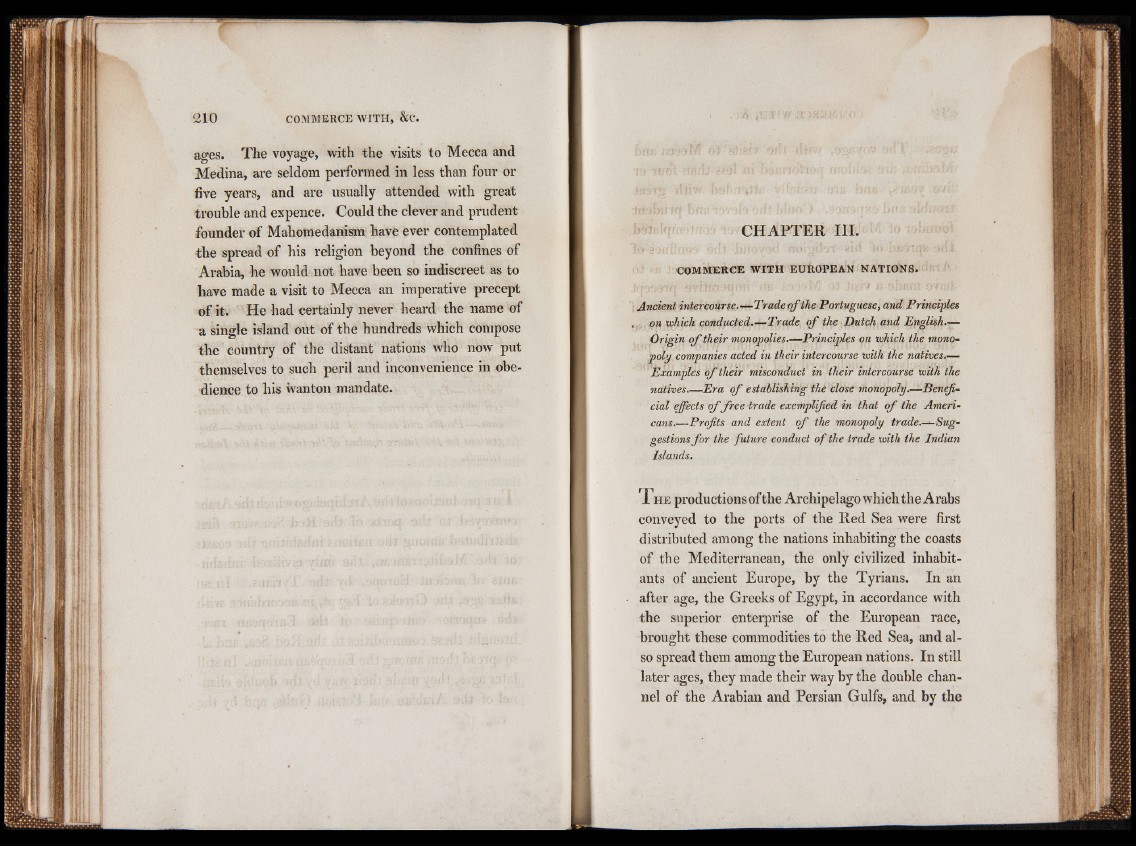
ages. The voyage, with the visits to Mecca and
Medina, are seldom performed in less than four or
five years, and are usually attended with great
trouble and expence. Could the clever and prudent
founder of Mahomedanism have ever contemplated
the spread of his religion beyond the confines of
Arabia, he would not have been so indiscreet as to
have made a visit to Mecca an imperative precept
of it. He had certainly never heard the name of
a single island out of the hundreds which compose
the country of the distant nations who now put
themselves to such peril and inconvenience in obedience
to his wanton mandate.
CHAPTER III.
COMMERCE WITH EUROPEAN NATIONS.
Ancient intercourse.*—Trade o f the Portuguese, and Principles
on which conducted.—Trade of the Dutch and English.-—
Origin of their monopolies.—Principles on which the monopoly
companies acted in their intercourse with the natives.—
Examples of their misconduct in their intercourse with the
natives.—Era of establishing the close monopoly.—Beneficial
effects of free trade exemplified in that o f the Americans.—
Profits and extent of the monopoly trade.—-Suggestions
for the future conduct of the trade with the Indian
Islands.
T he productions of the Archipelago which the Arabs
conveyed to the ports of the Red Sea were first
distributed among the nations inhabiting the coasts
of the Mediterranean, the only civilized inhabitants
of ancient Europe, by the Tyrians. In an
after age, the Greeks of Egypt, in accordance with
the superior enterprise of the European race,
brought these commodities to the Red Sea, and also
spread them among the European nations. In still
later ages, they made their way by the double channel
of the Arabian and Persian Gulfs, and by the